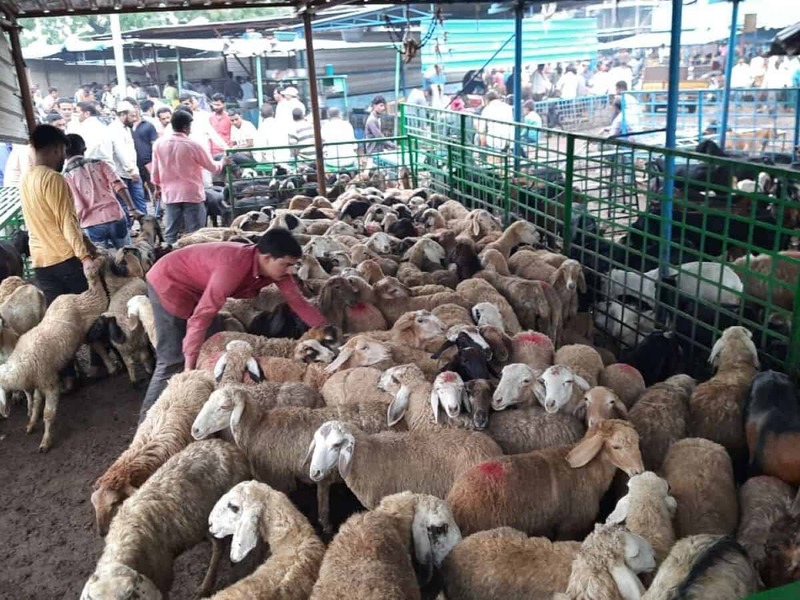Hyderabad grapples with various public issues as Bakrid approaches. Challenges include traffic congestion, increased waste, and strained municipal services. Authorities urge residents to cooperate, emphasizing cleanliness and adherence to regulations. Enhanced security measures and community initiatives aim to ensure a smooth and safe celebration amid the city’s growing infrastructural demands.
As Hyderabad prepares for the Bakrid (Eid-ul-Adha) festival on June 17, 2024, the city grapples with significant public issues related to sanitation and resource management. While the festival brings joy and celebration, it also exposes underlying problems that need immediate attention.
Rising Demand for Sacrificial Animals
The streets of Hyderabad, particularly in areas like Falaknuma, Malakpet, and Mehdipatnam, are bustling with traders selling sacrificial animals. The prices for these animals have skyrocketed, with a pair of sheep now costing between Rs 20,000 and Rs 25,000, a steep increase from the previous year. This surge is largely due to higher transportation costs and stringent regulations on animal transport.
Sanitation Challenges
One of the most pressing issues during Bakrid is maintaining cleanliness. The Greater Hyderabad Municipal Corporation (GHMC) has announced that additional sanitation teams and garbage collection vehicles will be deployed to manage the increased waste generated by the festival. However, these measures are often seen as insufficient.
In areas like Charminar and Old City, where the density of the population is high, garbage piles up quickly, creating unsanitary conditions. Residents have raised concerns over the lack of timely garbage collection and the insufficient number of waste disposal sites. “During Bakrid, the streets are filled with animal waste, and it takes days for the GHMC to clean it up. The smell becomes unbearable,” said Farah Ahmed, a resident of Falaknuma.
Inadequate Resources
The GHMC’s efforts, while commendable, are often hampered by inadequate resources. The corporation struggles with a shortage of sanitation workers, leading to delays in waste collection and disposal. This problem is exacerbated during festivals like Bakrid when the volume of waste increases exponentially. Despite deploying additional teams, the manpower is still insufficient to handle the surge.
Moreover, the city’s infrastructure is not equipped to manage the massive influx of animals and the resulting waste. The designated animal waste disposal sites are limited and often located far from residential areas, discouraging proper disposal practices among the public. “We are urged to dispose of animal waste properly, but there are not enough facilities nearby. This leads to people dumping waste in open areas,” explained Imran Sheikh, a resident of Malakpet.
Efforts and Appeals
To address these issues, the GHMC has launched awareness campaigns urging residents to maintain cleanliness and cooperate with sanitation workers. Eminent Muslim clerics and public representatives have also appealed to the community to dispose of animal waste responsibly and uphold the city’s Ganga-Jamuna Tehzeeb, a symbol of communal harmony and cleanliness.
The Hyderabad Police are also stepping up efforts to ensure a smooth and safe Bakrid. Checkposts will be set up around the city to prevent illegal cattle transport, and vehicles carrying livestock without proper veterinary certificates will be seized. However, these measures primarily address the symptoms rather than the root causes of the sanitation crisis.
A Call for Sustainable Solutions
As Hyderabad navigates through these challenges, it is clear that more sustainable solutions are needed. Increasing the number of waste disposal sites, enhancing the city’s sanitation infrastructure, and hiring more sanitation workers are crucial steps. Additionally, fostering a sense of community responsibility towards cleanliness can significantly alleviate the burden on municipal resources.
In conclusion, while Hyderabad’s preparations for Bakrid are underway, the city’s struggle with sanitation and resource management highlights the need for long-term solutions. Ensuring a clean and safe environment during festivals is not just a municipal responsibility but a collective effort that requires active participation from all citizens. #hydkhabar

